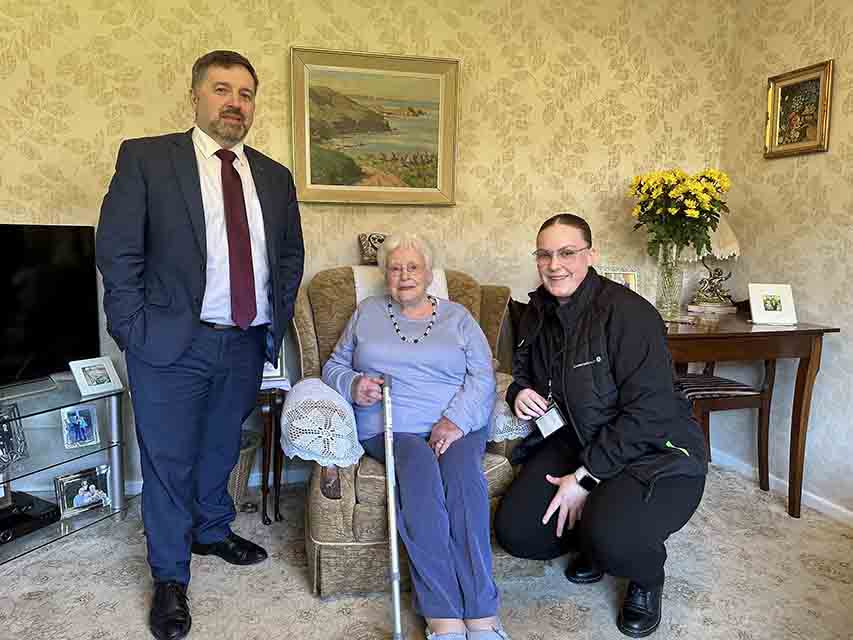£70m support package unveiled by Health Minister Robin Swann
Health Minister Robin Swann has announced a £70million support package for social care providers and hospices.
The funding will help independent sector organisations deal with rising costs from the start of the new financial year, particularly forthcoming minimum wage increases.
The Minister said: “I am making this intervention to stabilise the provision of key services and ensure legal requirements are met.
“I have made clear that my ambition for social care is to see wages climb well beyond the minimum wage level.
“That is vital for the long-term sustainability of the sector and is an issue that will have to be tackled.
“I have established structures to advance this work and I hope to see progress on this issue in the coming months.
“This £70m package includes an increase in the regional funding rate for domiciliary care providers to £20.01 per hour, which I believe can help stabilise the service and support enhanced pay.

“The 2024/25 budget is going to be severely challenging for all Departments, but I am determined to provide as much ongoing support as possible to the social care sector.”
The £70m funding has been made available for pay cost increases in:
- Independent Sector (IS) Nursing Homes
- IS Residential Homes
- Supported Living settings
- Jointly Commissioned Supported Accommodation
- IS Children’s Homes
- IS Domiciliary Care
- Self-Directed Support (SDS) and Direct Payment contracts
- HSC contracts in Community & Voluntary and Hospice sectors
The Minister added: “I want to reiterate my sincere gratitude to care workers for everything they do.
“They play a vital role in society and we are immensely grateful for their contribution.
“Social care is uniquely placed to provide critical support to citizens, enabling them to live healthy and independent lives while also protecting capacity in our hospitals.”
























